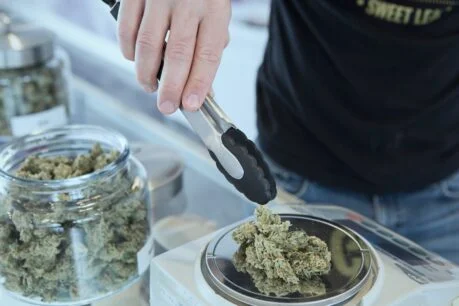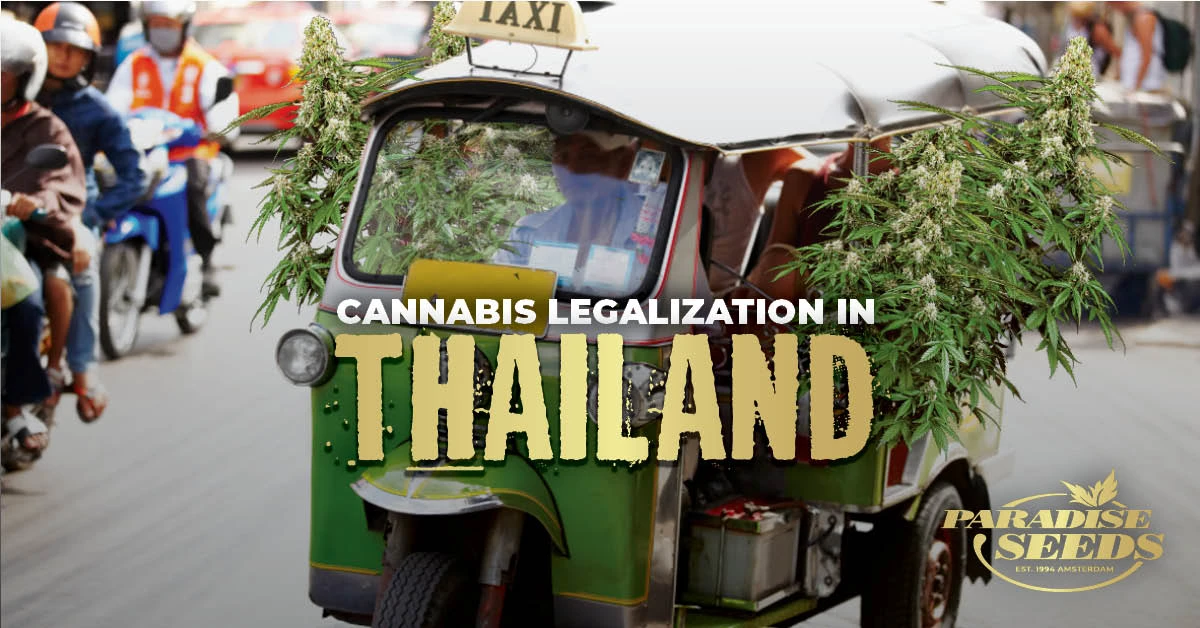One of the more surprising legalization stories of recent times has been the extraordinary Thai weed legalization which is transforming the way the plant is perceived in a key southeast Asian country.
After almost a hundred years of following a prohibitionist policy Thailand’s embrace of cannabis has followed an accelerated timeline which began in 2019 when the government legalized cannabis for medical and research use.
In January 2022, Thailand’s Public Health minister, Anutin Charnvirakul, signed a ministerial announcement which removed cannabis strains with less than 0.2% of THC from the narcotics list.
The announcement was greeted enthusiastically by Thailand’s passionate cannabis advocates and has opened up the possibility of opportunities for medical and health tourism sectors to give the economy a boost.
Paradise Seeds has become a partner in an exciting project being launched in Thailand where medical cannabis producers Bienestar T&N Co. Ltd and Cannabizta BV are cultivating high grade cannabis strains to develop medical cannabis products.
The Cannabizta facility, the first of its kind in Southeast Asia, is based in Buriram with a license to cultivate 150,000 plants. The company is aiming to make Thailand a world beating hub for medical cannabis and service expanding markets for medical cannabis in Asia.
Medical cannabis in Thailand
On the ground, Thai cannabis advocates are enthusiastic about the changing status of Thai weed and wondering how legalization will play out. Pock 420, is a Thai grower who is part of the Cannakin network, which advocates legalization, medical cannabis patient rights and better education about the plant’s potential as a medicine.

While he is hopeful about the prospects for change, he also has some reservations. “For many sick people it is still very difficult to access cannabis, or it’s too expensive to buy from specialist clinics. A 10ml bottle of cannabis oil costs 2 – 3000 baht (50 – 80€) which is too expensive for most people, so there are still many obstacles.”
He hopes that announcements which have grabbed the headlines, such as Thailand to give away one million free cannabis plants to households have real substance behind them.
However, one of his fears is that legalization could result in cannabis in Thailand becoming “like beer or whisky”, a product which is controlled by a few companies, pricing out Thai people who have traditionally used it for many years. He also says the change in policy has caused much misunderstanding due to the status of the 0.2% THC legal limit. “For tourists there has been a lot of confusion. Many think that all weed is now legal but it isn’t.”
What is Thai Weed?
Thailand has a number of landrace strains, some of which are indigenous to the southeast Asia region in general. Historically they have tended to be referred to as ‘Thai Weed’ or ‘Thai Stick’ outside of the country although local knowledge makes more differentiation.
For example Pock 420 refers to Hangkaron (karong means ‘squirrel tail’ in Thai) which in his opinion is the most prevalent landrace strain grown in the country. It’s a strong sativa “which grows like a tree”, with a very long grow time (6 – 8 months from seed to harvest), producing buds “as long as an arm”.
Thai sativa genetics are present in ‘modern’ strain genetics, particularly in Haze strains where they are mixed with Colombian and Mexican lineage. In the Paradise library varieties with Thai genetics include White Berry (and its auto version) and Haze weed strains such as Delahaze. The Thai influence is particularly evident in Atomical Haze, contributing to the potency of its uplifting sativa rush of energy and euphoria.
Thai weed history
Cannabis plants grown in the region provided pre-industrialised societies with a rich range of end products from foodstuffs and medicines to the raw materials (fiber) for making rope and clothing. Despite its cultural role, Thailand (then named Siam) embraced the spirit of international prohibition and passed various anti-drugs laws, with cannabis becoming officially criminalized in 1937.
The Thai weed ‘brand’ became famous as a result of the USA’s engagement in the Vietnam War.
During the conflict, 543,000 US soldiers served in Vietnam – the bulk fighting between 1965 – 1973 – and for many their R+R (Rest & Relaxation) time was spent in Thailand.
Marijuana was just one of the pleasures enticing American GIs on their downtime and a 1971 Department of Defense report estimated that 51% of US armed forces had smoked weed, as illustrated in the classic Vietnam war movie, Platoon.
Naturally this was a secret which many of those troops wanted to share and their collective experience of smoking weed had a direct crossover with the counter cultural revolution, or hippie movement, taking place in the USA in the 1960s. Inevitably, this demand created an illicit export market for Thai weed which was often presented as ‘Thai stick’ which, in pre-internet days, became synonymous with a type of weed (ie a weed strain from Thailand).



